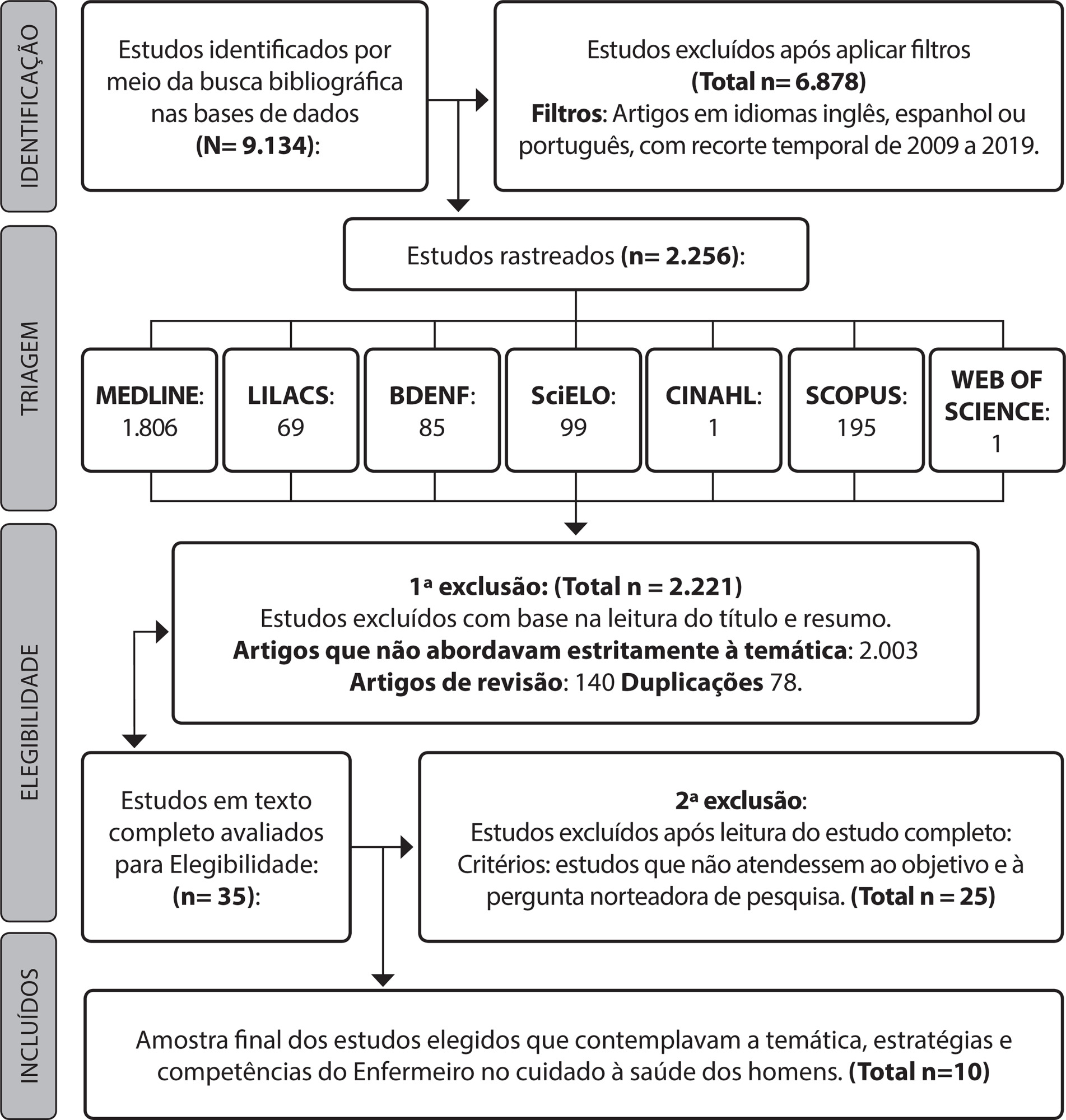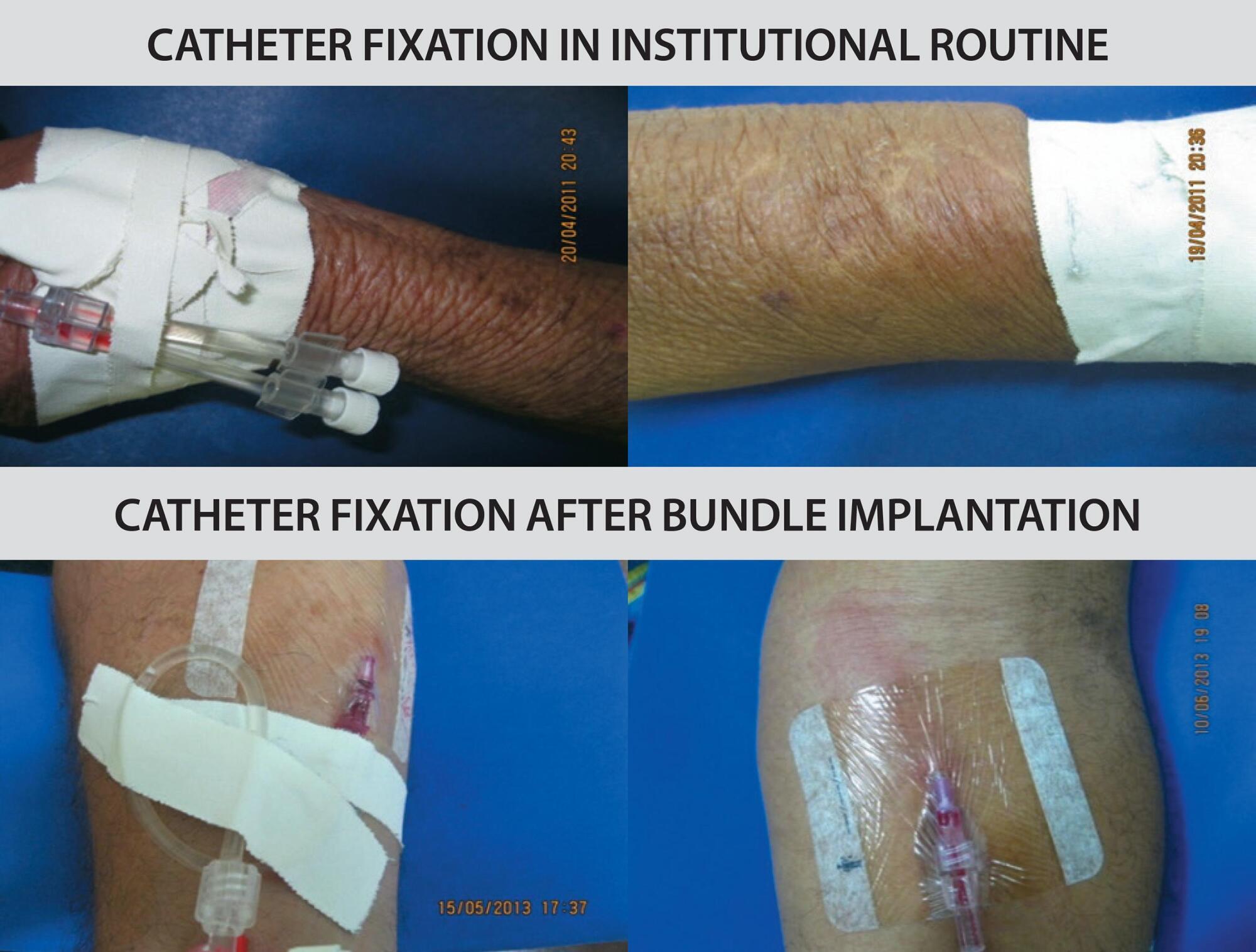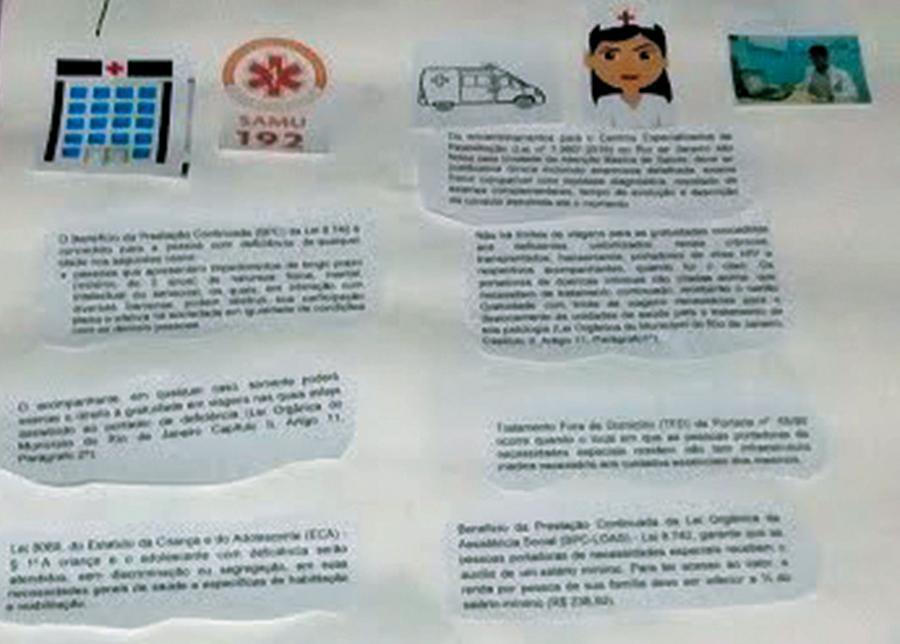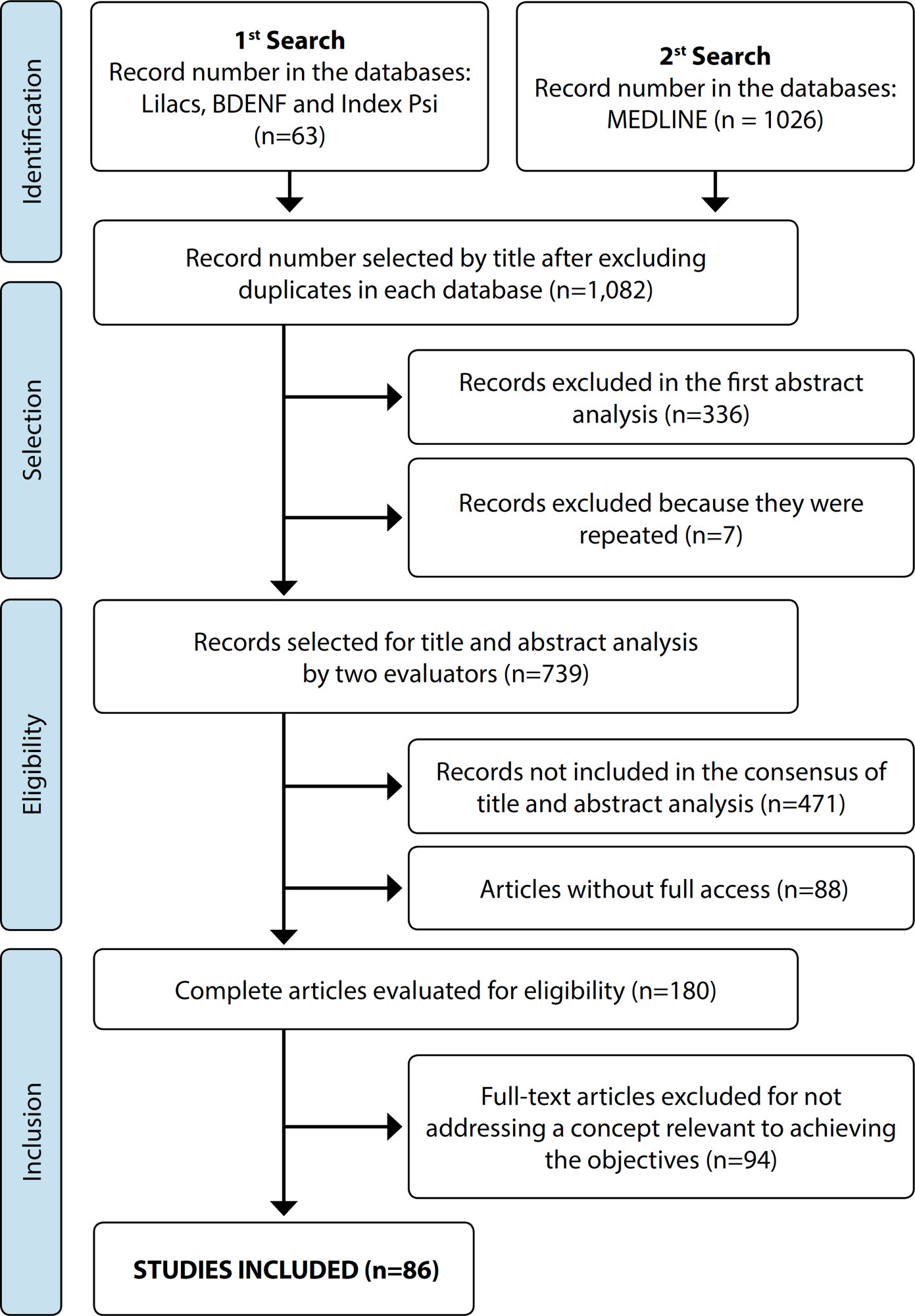-
ARTÍCULO ORIGINAL16/12/2024
Construction and validation of an educational game on biosafety in the central sterile supply department
Revista Brasileira de Enfermagem. 2024;77(6):e20230478
Resumen
ARTÍCULO ORIGINALConstruction and validation of an educational game on biosafety in the central sterile supply department
Revista Brasileira de Enfermagem. 2024;77(6):e20230478
DOI 10.1590/0034-7167-2023-0478
Visualizações0Ver maisABSTRACT
Objectives:
to construct and validate an educational game on biosafety in the Central Sterile Supply Department of a hospital in Curitiba, PR.
Methods:
the study was conducted using a quantitative approach, employing applied and technological research with an exploratory design. The process was divided into six stages, from the definition of the theme to the validation and application of the game. The study was carried out from May to August 2022, involving 17 nursing professionals from a Central Sterile Supply Department during day and night shifts, as well as 9 judges.
Results:
the study resulted in the construction of a board game named by the authors as “My Health First.”
Conclusions:
the research achieved its objective of constructing and validating an educational game. By reflecting on professional practice and correlating the occupational risks present, the professionals were able to list safe actions, identify problems, and seek solutions.

-
ARTÍCULO ORIGINAL16/12/2024
Health literacy development of Primary Health Care patients: qualitative research
Revista Brasileira de Enfermagem. 2024;77(6):e20240154
Resumen
ARTÍCULO ORIGINALHealth literacy development of Primary Health Care patients: qualitative research
Revista Brasileira de Enfermagem. 2024;77(6):e20240154
DOI 10.1590/0034-7167-2024-0154
Visualizações0Ver maisABSTRACT
Objectives:
to identify the process of health literacy development among primary care patients, relating it to their self-care practices.
Methods:
qualitative, prospective research with 22 patients from two Family Health Strategy units. Data were obtained through individual semi-structured interviews, examined through descriptive statistics and thematic content analysis.
Results:
the results discuss how participants learn about health and how this resonates in their behaviors, culminating in two thematic categories: “Health knowledge construction”; and “Dialogue between health knowledge construction and patient care actions”.
Final Considerations:
health knowledge is developed mainly through interpersonal relationships, mediated by health professionals through bonding and communication. Community educational actions and training of health professionals in communication can promote health literacy and self-care among patients.

-
ARTÍCULO ORIGINAL16/12/2024
Analysis of omission of antimicrobial doses in Intensive Care Units
Revista Brasileira de Enfermagem. 2024;77(6):e20240102
Resumen
ARTÍCULO ORIGINALAnalysis of omission of antimicrobial doses in Intensive Care Units
Revista Brasileira de Enfermagem. 2024;77(6):e20240102
DOI 10.1590/0034-7167-2024-0102
Visualizações0Ver maisABSTRACT
Objectives:
to analyze the rate of antimicrobial dose omission in intensive care units.
Methods:
cross-sectional study carried out between March 1 and September 30, 2023, in intensive care units of a University Hospital in Rio de Janeiro.
Results:
the sample consisted of 452 prescriptions and 1467 antimicrobial doses. The dose omission rate was 4.29%. Each antimicrobial prescribed increased the chance of omission by 51%. The strategy of double-checking prescriptions helped prevent 30% of antimicrobial dose omissions (p=0.0001).
Conclusions:
monitoring the omission of antimicrobial doses can guide nursing actions to improve quality and patient safety, contributing to the prevention of medication errors, antimicrobial stewardship and the fight against antimicrobial resistance.
-
ARTÍCULO DE REVISIÓN16/12/2024
Recommendations for guidelines for promoting mental health in the workplace: an umbrella review
Revista Brasileira de Enfermagem. 2024;77(6):e20240086
Resumen
ARTÍCULO DE REVISIÓNRecommendations for guidelines for promoting mental health in the workplace: an umbrella review
Revista Brasileira de Enfermagem. 2024;77(6):e20240086
DOI 10.1590/0034-7167-2024-0086
Visualizações1Ver maisABSTRACT
Objectives:
to summarize the recommendations of guidelines for promoting mental health in the workplace.
Methods:
an umbrella review, according to Joanna Briggs Institute and Preferred Reporting Items for Systematic reviews and Meta-Analyses methodological assumptions. Data collection was carried out in January 2021 and updated in July 2023 in the American Psychological Association, Cochrane Library, EMBASE, National Library of Medicine, and Scopus databases. Systematic reviews that assessed guidelines with recommendations for mental health care for workers were included. PROSPERO registration CRD42023461845.
Results:
four systematic reviews published between 2015 and 2018 were identified. The abstracts highlighted actions that facilitate and inhibit the recommendations as well as three categories of intervention: primary prevention – worker protection; secondary prevention – promoting workers’ mental health; and tertiary prevention – supporting, monitoring and rehabilitating workers upon returning to work.
Conclusions:
the interventions are based on prevention, promotion and early recognition, support and rehabilitation of mental health problems.

-
ARTÍCULO ORIGINAL16/12/2024
Psychometric analysis of ProQOL-BR in nursing: building hospital safety and protection
Revista Brasileira de Enfermagem. 2024;77(6):e20240085
Resumen
ARTÍCULO ORIGINALPsychometric analysis of ProQOL-BR in nursing: building hospital safety and protection
Revista Brasileira de Enfermagem. 2024;77(6):e20240085
DOI 10.1590/0034-7167-2024-0085
Visualizações0Ver maisABSTRACT
Objectives:
to analyze the psychometric properties of the ProQOL-BR instrument in hospital nursing professionals.
Methods:
a methodological study to validate the ProQOL-BR. Confirmatory factor analysis, assessment of local and global adjustment quality, Pearson hypothesis testing and Cronbach’s alpha internal consistency analysis were used.
Results:
a total of 490 professionals participated. The model presents adequate quality due to factor weights (λ≥ 0.40), acceptable overall fit quality and adequate chi-square ratio and degrees of freedom (χ2/g.1=2.51) for the parameters of CFI (0.923), GFI (0.902), TLI (0.914) and RMSEA (0.042). In terms of validity, it was shown to be adequate with CC=0.89. The internal consistency obtained by standardized Cronbach’s alpha was 0.761. Criterion validity was shown to be favorable with significant correlations (0.001).
Conclusions:
the instrument was validated regarding content, criteria and reliability. Three questions were removed from the original instrument, ProQOL-BR, leaving the final instrument with 25 questions.

-
16/12/2024
GerenciaDOR™: development of digital technology by nurses for the assessment of patients with chronic pain
Revista Brasileira de Enfermagem. 2024;77(6):e20240050
Resumen
GerenciaDOR™: development of digital technology by nurses for the assessment of patients with chronic pain
Revista Brasileira de Enfermagem. 2024;77(6):e20240050
DOI 10.1590/0034-7167-2024-0050
Visualizações0Ver maisABSTRACT
Objectives:
to develop a digital technological solution (prototype) for assessing patients with chronic pain.
Methods:
this is a methodological and technological development study based on the Human-Centered Design framework and the principles of Patient-Centered Care. The prototype guides patients through a body diagram and directs them to an evaluation using specific instruments that address the multidimensional aspects of chronic pain.
Results:
the GerenciaDOR* project enables navigation through the Web App screens, providing access to pain assessment features up to the presentation of results.
Final Considerations:
the study describes a systematic approach to pain assessment and expands nurses’ knowledge in pain management. Additionally, it can promote the development of other digital technologies for chronic pain assessment and contribute to a multidisciplinary, patient centered treatment.

-
ARTÍCULO ORIGINAL16/12/2024
Respectful care for postpartum women with sickle cell disease: a netnographic study
Revista Brasileira de Enfermagem. 2024;77(6):e20230545
Resumen
ARTÍCULO ORIGINALRespectful care for postpartum women with sickle cell disease: a netnographic study
Revista Brasileira de Enfermagem. 2024;77(6):e20230545
DOI 10.1590/0034-7167-2023-0545
Visualizações1Ver maisABSTRACT
Objectives:
to analyze principles of respectful maternity care in narratives of postpartum women with sickle cell disease, relating them to Sustainable Development Goals.
Methods:
netnographic study, with two videos published in 2020. Deductive iconographic and thematic analysis by Respectful Maternity Care Charter, organized in MAXQDA.
Results:
principles identified were the right to: freedom from harm and ill-treatment; information, informed consent, refusal of medical procedures, and respect for their choices and preferences including companion; be considered a person from birth, with dignified and respectful treatment; health at the highest possible level; newborns being with their parents or guardians. The Sustainable Development Goals for women by 2030 were not positively contemplated in postpartum women’s experience.
Final Considerations:
it is appropriate that health workers qualify themselves to provide respectful maternity care, with qualified listening, understanding, and resolution of unique demands of postpartum women with sickle cell disease, seeking equality in care for women.

-
ARTÍCULO DE REVISIÓN16/12/2024
Strategies for expanding vaccination coverage in children in Brazil: systematic literature review
Revista Brasileira de Enfermagem. 2024;77(6):e20230343
Resumen
ARTÍCULO DE REVISIÓNStrategies for expanding vaccination coverage in children in Brazil: systematic literature review
Revista Brasileira de Enfermagem. 2024;77(6):e20230343
DOI 10.1590/0034-7167-2023-0343
Visualizações1Ver maisABSTRACT
Objectives:
to identify the strategies found in the literature for increasing vaccination coverage among children in Brazil. It is justified mainly by the current scenario of falling vaccination coverage.
Methods:
systematic literature review. The search was carried out in the Pubmed (MEDLINE), Embase and Scopus databases, following the PRISMA guidelines.
Results:
initially, 4,824 results were returned. In the end, 6 studies were included for narrative synthesis using the SWiM methodology. Of these, 50% dealt with studies related to the Bolsa Família Program (PBF). The others explored strategies for approaching parents directly, Rapid Vaccination Monitoring (MRV) and the Community Health Agents Program (PACS). The PBF did not guarantee compliance with the conditionality of keeping vaccinations up to date. The MRV and PACS are effective strategies, especially because they allow active search for absentees.
Conclusions:
we conclude that more publications are needed on strategies to increase vaccination coverage among children in Brazil.

-
ARTÍCULO DE REVISIÓN21/12/2020
Estratégias e competências do enfermeiro no cuidado à saúde dos homens: revisão integrativa
Revista Brasileira de Enfermagem. 2020;73:e20190546
Resumen
ARTÍCULO DE REVISIÓNEstratégias e competências do enfermeiro no cuidado à saúde dos homens: revisão integrativa
Revista Brasileira de Enfermagem. 2020;73:e20190546
DOI 10.1590/0034-7167-2019-0546
Visualizações0Ver maisRESUMO
Objetivos:
sumarizar as evidências científicas sobre as estratégias e competências de enfermeiros no cuidado à saúde dos homens.
Métodos:
revisão integrativa, realizada em sete bases de dados, com recorte temporal de 2009 a 2019, utilizando os descritores “saúde do homem”, “competência profissional”, “enfermagem”, “cuidados de enfermagem” e “masculino” em português e em inglês.
Resultados:
selecionaram-se dez produções, nas quais demonstrou-se que profissionais de enfermagem desenvolvem suas práticas profissionais no que se refere ao cuidado à saúde dos homens, em convergência com as competências gerais da profissão, sendo as mais utilizadas: atenção à saúde; tomada de decisões; comunicação; administração; gerenciamento; Educação Permanente e liderança, consecutivamente.
Considerações Finais:
revelou-se o empenho dos profissionais para o fortalecimento das ações em saúde, direcionadas às necessidades masculinas, em conformidade com as competências gerais da profissão e os princípios e diretrizes da Política Nacional de Atenção Integral à Saúde do Homem.

-
ARTÍCULO ORIGINAL21/10/2019
Nursing protocol in vascular trauma prevention: peripheral catheterization bundle in urgency
Revista Brasileira de Enfermagem. 2019;72(6):1512-1518
Resumen
ARTÍCULO ORIGINALNursing protocol in vascular trauma prevention: peripheral catheterization bundle in urgency
Revista Brasileira de Enfermagem. 2019;72(6):1512-1518
DOI 10.1590/0034-7167-2018-0457
Visualizações0Ver maisABSTRACT
Objective:
to create, apply and analyze in clinical practice the effectiveness of a bundle to prevent peripheral vascular trauma to approach the peripheral venous puncture process.
Method:
action research with 435 adult participants in an emergency service from 2011 to 2013. Creation of the bundle for prevention of vascular trauma based on scientific evidence, ease of operation, observation and measurement with implantation through an educational intervention of the team of nursing. Effectiveness analyzed by descriptive and inferential statistics using chi-square. Consecutive sample with 95% confidence interval.
Results:
Five stages of the bundle were related to the catheter fixation, permanence and removal process. The incidence of vascular traumas due to vein punctures reduced by 46.41% after implantation of the bundle to prevent vascular trauma associated with emergency peripheral catheterization.
Conclusion:
The bundle in clinical practice reduced vascular traumas by venipuncture.

-
ARTÍCULO ORIGINAL31/07/2020
Demandas educativas de familiares de crianças com necessidades especiais de saúde na transição hospital casa
Revista Brasileira de Enfermagem. 2020;73:e20190156
Resumen
ARTÍCULO ORIGINALDemandas educativas de familiares de crianças com necessidades especiais de saúde na transição hospital casa
Revista Brasileira de Enfermagem. 2020;73:e20190156
DOI 10.1590/0034-7167-2019-0156
Visualizações0RESUMO
Objetivos:
analisar as demandas educativas dos familiares de crianças com necessidades especiais de saúde na transição do hospital para casa.
Métodos:
pesquisa qualitativa realizada entre fevereiro e junho de 2018, por meio, de dinâmicas de criatividade e sensibilidade do Almanaque do método criativo sensível; participaram nove cuidadores familiares de crianças, internadas em um hospital público do Rio de Janeiro, cujos dados foram submetidos a análise de discurso francesa.
Resultados:
as demandas educativas foram de origem clínica centrada nos cuidados complexo e contínuo, tecnológico, habitual modificado, medicamentoso, de desenvolvimento, misto e de origem social, relacionada aos insumos e direitos das crianças.
Considerações Finais:
a demanda educativa social emergiu como uma nova tipologia a ser incorporada ao conjunto de cuidados dessas crianças. A transição do hospital para casa deve ser processual, tendo o enfermeiro como coordenador, visando um cuidado participativo, seguro, com qualidade e articulado dentro de uma rede social.
Palavras-chave: Cuidado TransicionalEducação em SaúdeFamíliaNecessidades e Demandas de Serviços de SaúdeSaúde da CriançaVer mais
-
INFORME DE EXPERIENCIA13/11/2020
Pedagogical mediations for non-formal nursing teaching during the COVID-19 pandemic
Revista Brasileira de Enfermagem. 2020;73:e20200499
Resumen
INFORME DE EXPERIENCIAPedagogical mediations for non-formal nursing teaching during the COVID-19 pandemic
Revista Brasileira de Enfermagem. 2020;73:e20200499
DOI 10.1590/0034-7167-2020-0499
Visualizações0Ver maisABSTRACT
Objective:
to report the experience of developing pedagogical mediations in a Virtual Learning Environment implemented in a nursing faculty during the COVID-19 pandemic.
Methods:
an experience report on the construction of a distance course aimed at graduates and residents of a nursing faculty at a public university located in the city of Rio de Janeiro.
Results:
the course’s conception, operationalization and implementation were the result of a collective work that culminated in a non-formal, virtual and problematic teaching process, which reached a participation rate of 82% of enrolled students.
Final considerations:
even in times of social isolation, the course promoted collaborative learning of knowledge about COVID-19 and strengthened the relationship between professors and students. The possibility of carrying out distance activities based on solid methodological proposals that contradict the content logic often observed in distance learning is emphasized.

-
INFORME DE EXPERIENCIA05/02/2021
Paulo Freire’s culture circles: contributions to nursing research, teaching, and professional practice
Revista Brasileira de Enfermagem. 2021;74(1):e20190626
Resumen
INFORME DE EXPERIENCIAPaulo Freire’s culture circles: contributions to nursing research, teaching, and professional practice
Revista Brasileira de Enfermagem. 2021;74(1):e20190626
DOI 10.1590/0034-7167-2019-0626
Visualizações0Ver maisABSTRACT
Objectives:
to share the contributions of culture circles for teaching, research, and professional nursing practice, having as framework Paulo Freire’s Research Itinerary.
Methods:
this is an experience report of a culture circle, with participation of three professors and ten students, enrolled in a course of a Graduate Program in Nursing in southern Brazil. In this culture circle, a tree was built in which the roots formed the thematic investigation, the stem, coding and decoding, and the leaves, the Research Itinerary critical unveiling.
Results:
participants demonstrated empowerment of Paulo Freire’s assumptions, and building a tree made it possible to discuss in a pleasant and playful way culture circle use in teaching, research, and professional nursing practice.
Final Considerations:
the culture circle promoted reflection and action on nursing praxis, turning Freirean thoughts into something concrete and transforming realities.

-
ARTÍCULO DE REVISIÓN28/05/2021
Scientific production about palliative care and communication in online journals: a scoping review
Revista Brasileira de Enfermagem. 2021;74(2):e20190378
Resumen
ARTÍCULO DE REVISIÓNScientific production about palliative care and communication in online journals: a scoping review
Revista Brasileira de Enfermagem. 2021;74(2):e20190378
DOI 10.1590/0034-7167-2019-0378
Visualizações0Ver maisABSTRACT
Objectives:
to characterize publications about palliative care and communication, with an emphasis on the approaches addressed, disseminated in online journals.
Methods:
it is a scope review, in which the mnemonic strategy Problem, Concept and Context was used, based on database research. The sample consisted of 86 publications.
Results:
most publications were written in the English language, published in the journal BMC Palliative Care, and with level of evidence IV. As for the approaches approached, the following stand out: Importance of communication in palliative care; Breaking the bad news in palliative care; Training professionals/staff to communicate in palliative care; and Communication strategies in palliative care.
Final Considerations:
the review made it possible to map a significant number of publications on palliative care and communication. It is recommended to produce new studies with better scientific evidence that guide the assistance of health professionals.

-
ARTÍCULO ORIGINAL10/02/2020
Group Brief Intervention: effectiveness in motivation to change alcohol intake
Revista Brasileira de Enfermagem. 2020;73(1):e20180138
Resumen
ARTÍCULO ORIGINALGroup Brief Intervention: effectiveness in motivation to change alcohol intake
Revista Brasileira de Enfermagem. 2020;73(1):e20180138
DOI 10.1590/0034-7167-2018-0138
Visualizações0Ver maisABSTRACT
Objective:
To verify the effectiveness of the group brief intervention (GBI), performed by nurses in motivational stages to change the pattern of alcohol intake.
Method:
Randomized controlled trial with 3-month follow-up. The ruler of readiness for change was applied in 180 individuals with risk or harmful alcohol intake pattern in basic health unit. Only the experimental group (EG) was submitted to the intervention. Both groups (experimental and control [CG]) participated in the follow-up.
Results:
EG had a mean score before GBI=6.55 (SD=3.41) points (preparation). After GBI=8.00 (SD=2.88) points (action) and in the follow-up 7.92 (SD=3.06) points (action). CG presented a mean score before GBI=5.42 (SD=3.26) points (preparation); after GBI=6.67 (SD=3.05) points (preparation) and in the follow up had a mean score of 4.80 (SD=2.86) points (contemplation). There was a statistically significant difference between the two groups at the motivational stages (p≤ 0,03).
Conclusion:
It was evidenced that GBI was effective in increasing the motivation to change harmful alcohol intake.

Búsqueda
Buscar en:
Nuvem de Tags
Adolescente (85) Atenção Primária à Saúde (239) COVID-19 (91) Criança (91) Cuidados de Enfermagem (269) Educação em Enfermagem (151) Educação em Saúde (139) Enfermagem (930) Enfermagem Pediátrica (86) Estudantes de Enfermagem (77) Estudos de Validação (131) Família (87) Idoso (208) Promoção da Saúde (99) Qualidade de Vida (104) Saúde do Trabalhador (86) Saúde Mental (145) Saúde Pública (82) Segurança do Paciente (150) Tecnologia Educacional (100)



